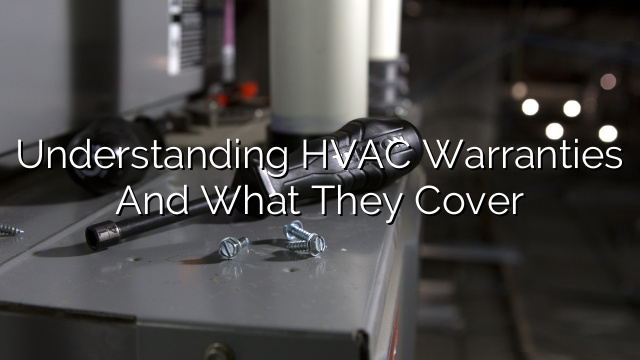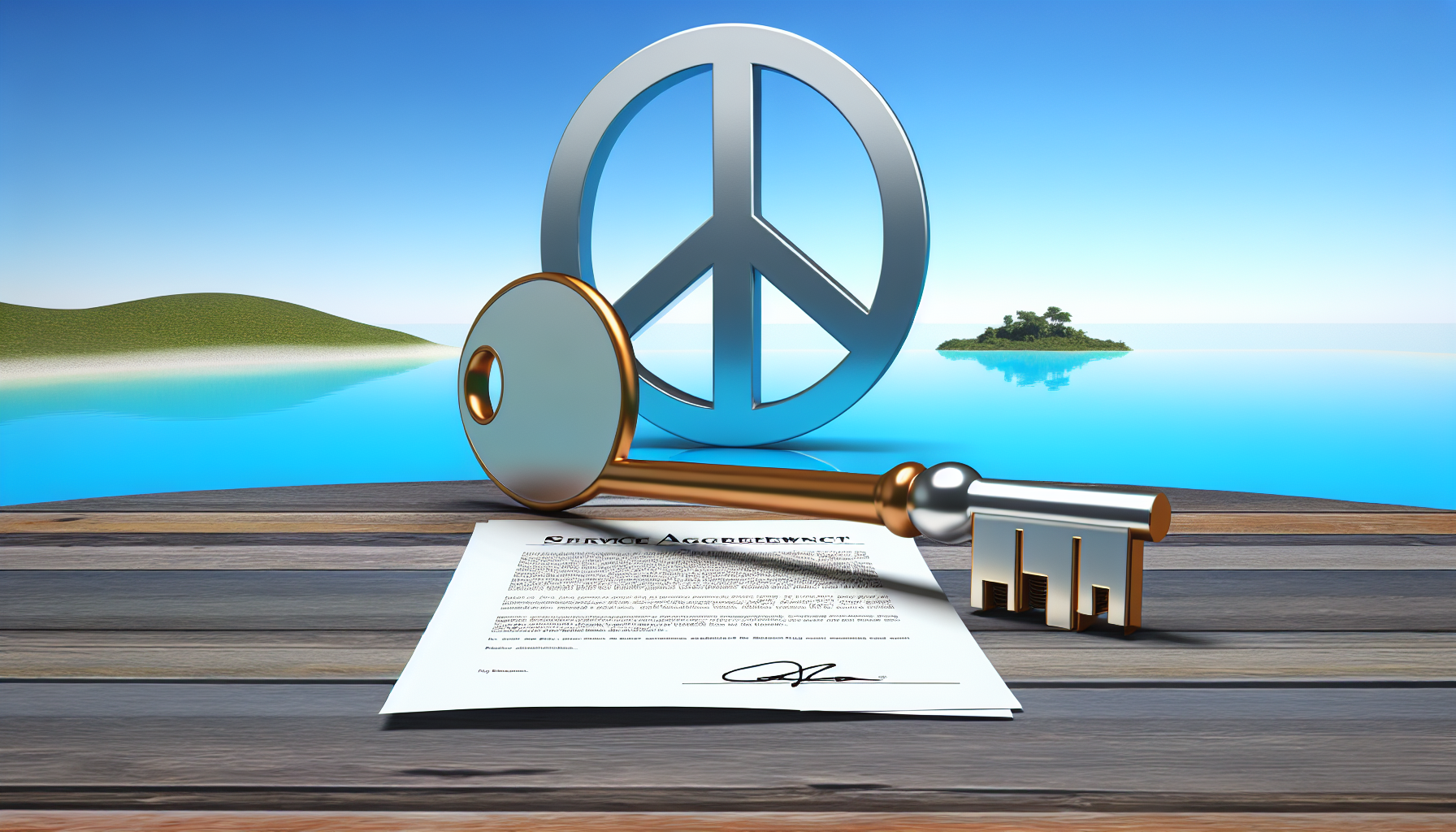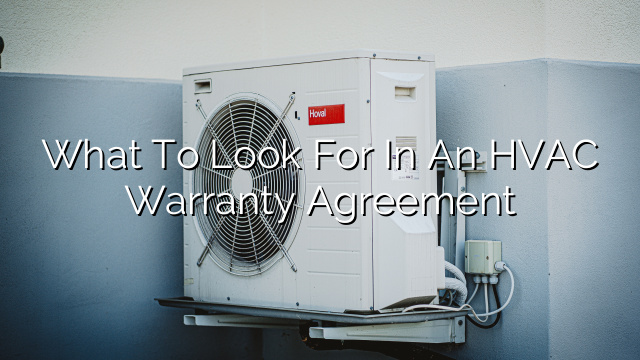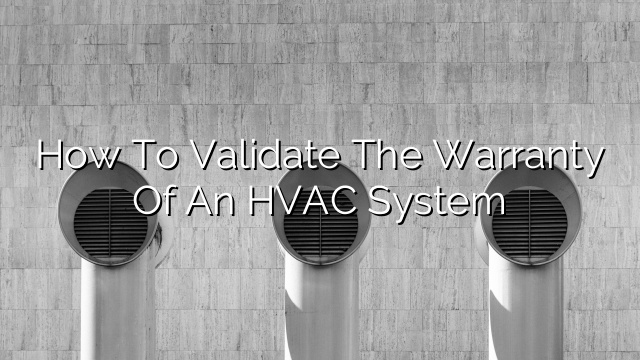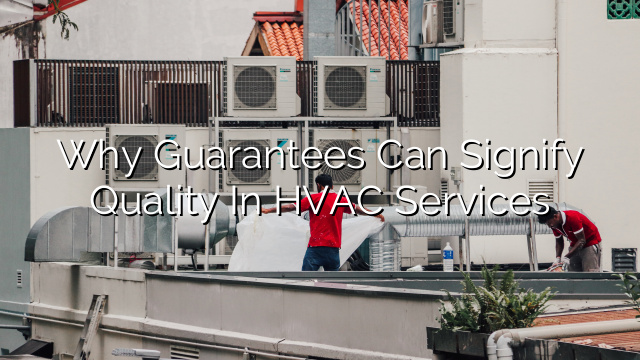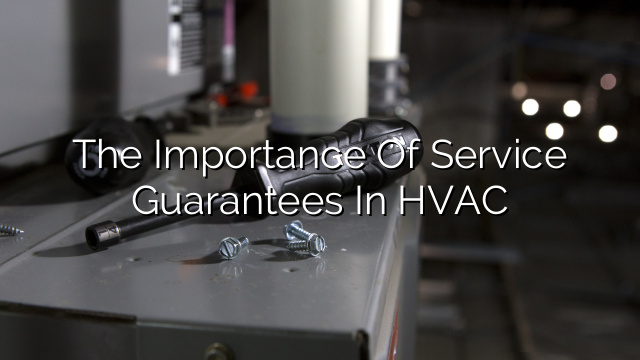Introduction
When it comes to hiring an HVAC technician, one of the most important factors to consider is the warranties and guarantees they offer. HVAC systems are a significant investment, and having a comprehensive warranty in place can provide you with peace of mind and protect your investment. In this blog post, we will discuss HVAC warranties, what they cover, and why understanding them is crucial when hiring an HVAC tech.
Understanding HVAC Warranties
An HVAC warranty is a contract between the manufacturer or installer and the homeowner. It outlines the terms and conditions under which the HVAC system and its components are covered. Understanding the specific details of your warranty is essential to ensure that you don’t encounter any unexpected costs or issues with your HVAC system.
There are two main types of HVAC warranties:
- Manufacturer’s Warranty: This warranty is provided by the manufacturer and covers defects in materials and workmanship. It typically covers the HVAC system and its major components for a specific period, such as 5, 10, or 15 years. However, it’s important to note that this warranty may not cover labor costs associated with repairs or replacements.
- Installer’s Warranty: This warranty is provided by the HVAC technician or company that installs the system. It covers the workmanship and installation of the HVAC system. The duration of this warranty can vary, but it is usually shorter than the manufacturer’s warranty.
It’s important to review and understand both warranties before hiring an HVAC technician. Doing so will help you determine if the warranties provide adequate coverage for your needs and if there are any loopholes or limitations that you should be aware of.
What HVAC Warranties Cover
HVAC warranties typically cover the following:
- Defects in materials, such as faulty wiring or components
- Defects in workmanship, such as improper installation
- Parts and components, such as compressors, motors, coils, and electronic control boards
- Some warranties may also cover labor costs for repairs or replacements
However, it’s important to note that warranties do not cover the following:
- Damage caused by improper maintenance or neglect
- Damage caused by natural disasters or accidents
- Damage caused by unauthorized repairs or modifications
- Normal wear and tear
- Non-covered repairs or replacements performed by unauthorized technicians
It’s important to read the fine print and understand the limitations and exclusions of your warranty to avoid any surprises down the line.
Why Understanding HVAC Warranties is Crucial
Understanding HVAC warranties is crucial for several reasons:
- Protection: A comprehensive warranty protects your investment by covering the cost of repairs or replacements for covered components. This can save you from facing unexpected expenses and provides you with peace of mind.
- Peace of Mind: Knowing that your HVAC system is covered by a warranty gives you peace of mind. You can rest easy knowing that if something goes wrong, you have a safety net that will take care of the expenses.
- Clear Expectations: Understanding the details of your warranty helps you set clear expectations. You will know what is covered and what is not, enabling you to make informed decisions about repairs and maintenance.
- Budgeting: Knowing the coverage provided by your warranty helps you budget for any potential repairs or replacements. It allows you to plan your finances accordingly and avoid unexpected financial strain.
- Warranty Validation: Understanding your warranty helps you ensure that any repairs or replacements are performed by authorized technicians. Unauthorized repairs can void your warranty and lead to additional expenses.
FAQs
Q: How long do HVAC warranties typically last?
A: HVAC warranties vary depending on the manufacturer and the components. Manufacturer’s warranties can range from 5 to 15 years, while installer’s warranties are usually shorter.
Q: Do HVAC warranties cover all repairs?
A: HVAC warranties typically cover repairs and replacements for covered components due to defects in materials or workmanship. However, they may not cover repairs caused by improper maintenance, neglect, or unauthorized repairs.
Q: Can I perform maintenance on my HVAC system without voiding the warranty?
A: Yes, regular maintenance is important for the longevity and efficiency of your HVAC system. Performing regular maintenance will not void the warranty, but it’s essential to keep proper documentation and have the maintenance performed by authorized technicians.
Q: Can I transfer my HVAC warranty to a new homeowner?
A: Some HVAC warranties are transferable, while others are not. If you plan to sell your home, it’s important to check the warranty terms to determine if it can be transferred to the new homeowner.
Conclusion
Understanding HVAC warranties is crucial when hiring an HVAC technician. It helps you protect your investment, set clear expectations, and avoid unexpected expenses. When reviewing warranties, be sure to understand the coverage, limitations, and exclusions to make informed decisions about your HVAC system. By doing so, you can ensure that you have a warranty that provides adequate coverage and peace of mind for years to come.

